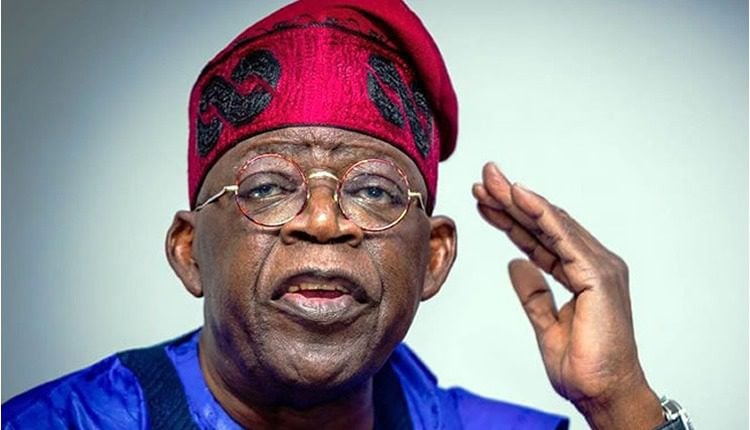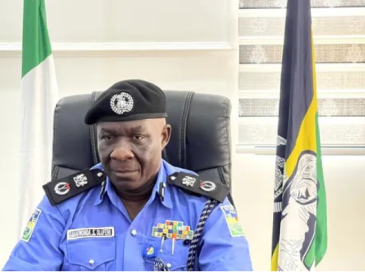As the 2027 general elections draw closer, President Bola Ahmed Tinubu is tightening his political grip on the South following a wave of high-profile defections from the Peoples Democratic Party (PDP) and other opposition parties to the All Progressives Congress (APC).
The development has raised fears of Nigeria tilting toward a one-party system, with opposition leaders, including former Vice President Atiku Abubakar and Labour Party presidential candidate Peter Obi, condemning the mass defections as acts of political desperation and self-preservation.
Both opposition figures vowed that Nigerians would “take their pound of flesh” at the ballot box in 2027, accusing the Tinubu administration of deepening the nation’s economic hardship and democratic decline.
Defection Wave Sweeps South
Reliable APC sources confirmed that several Southern governors are in advanced talks to join the ruling party. The defections began earlier in the week when Enugu State Governor Peter Mbah officially left the PDP for the APC alongside members of his State Executive Council.
Barely 24 hours later, Bayelsa State Governor Douye Diri announced his resignation from the PDP, ending months of speculation about his political future. According to his Chief Press Secretary, Daniel Alabrah, Diri quit the PDP alongside the Speaker of the State House of Assembly, Abraham Ingobere, and 21 lawmakers.
Though Diri did not immediately disclose his next political affiliation, party insiders told The PUNCH that discussions are underway for his formal entry into the APC.
Meanwhile, governors Siminalayi Fubara (Rivers), Alex Otti (Abia), Caleb Mutfwang (Plateau), and Agbu Kefas (Taraba) are reportedly in talks to join the ruling party before the election year.
A senior APC official said:
“The APC is attracting them all. Negotiations are ongoing with PDP governors from the South, and soon, the governors of Abia, Rivers, and even Diri will join. Talks are also progressing with some Northern governors from the North Central and North East.”
APC Expands Southern Influence
With the latest defections, the APC has expanded its control across Southern Nigeria. Out of 17 states in the region, the ruling party now governs Lagos, Ogun, Ekiti, Ondo, Edo, Akwa Ibom, Cross River, Delta, Imo, Ebonyi, and Enugu.
The Labour Party currently controls Abia, while Anambra remains under the All Progressives Grand Alliance (APGA). The PDP now governs only Oyo, Rivers, and Osun, while Bayelsa’s status remains fluid following Diri’s exit.
In the North, the APC holds sway in 13 of 19 states, with the PDP retaining Zamfara, Plateau, Taraba, Adamawa, and Bauchi, and the NNPP controlling Kano.
Opposition Reactions: “Battle Line Drawn”
Responding to the defections, Atiku’s media aide Paul Ibe accused the Tinubu administration of weaponizing state institutions to intimidate opposition figures.
He said:
“The Tinubu-led APC has used anti-corruption agencies and state institutions to coerce opposition leaders. What is unfolding is clear a battle line has been drawn. Nigerians suffering from poverty and insecurity will decide the outcome in 2027.”
Similarly, Labour Party’s Peter Obi dismissed fears of a one-party state, asserting that “no governor can capture a state” in a democracy.
“The people will decide, not governors or senators,” Obi said in Abuja. “We are no longer in a military era where you ‘capture’ people. Leadership is about persuasion, not coercion.”
His aide, Yunusa Tanko, added that many defectors were motivated by “selfish interests” or political pressure, warning that “Nigerians will take their pound of flesh in 2027.”
Wike Defends Defectors, Praises Tinubu’s Leadership
Amid the growing defections, Federal Capital Territory Minister Nyesom Wike a PDP member said the mass movement of opposition governors to the APC vindicated his earlier support for President Tinubu.
Speaking at an event in Abuja, Wike said:
“Those who accused me of destabilizing the PDP are now in the APC. They should commend me for paving the way. President Tinubu has shown decisive leadership states now have funds for projects and salaries. That’s what good governance looks like.”
Wike added that governors now had no reason to leave debts for their successors, describing the current administration’s fiscal reforms as “visionary and transformative.”
Dickson, ADC Condemn Defections
Former Bayelsa Governor and Senator Seriake Dickson criticised his successor, Diri, and other defectors for “abandoning the party that gave them political identity.”
He warned that the trend of defections was pushing Nigeria toward a “dangerous one-party democracy.”
“I remain steadfast in the PDP. Nigeria’s democracy cannot thrive without opposition. Those defecting are running away from problems they helped create,” Dickson said.
Echoing his stance, the African Democratic Congress (ADC) described the defections as “a betrayal of public trust” and proof that the APC seeks to turn Nigeria into a one-party state.
In a statement signed by its National Publicity Secretary, Bolaji Abdullahi, the ADC said:
“These governors have abandoned their people to join those who have impoverished Nigerians. The APC has failed on security, the economy, and governance. 2027 will be a battle between the people and the ruling elite.”
Enugu PDP Vows to Rebuild
In Enugu State, local PDP leaders pledged to rebuild the party ahead of 2027 despite Mbah’s defection. Former state youth leader Dr Okey Ozoani urged loyal members to “remain resilient,” while others criticised the governor for prioritizing personal ambition over public service.
“Is defecting going to reduce taxes in Enugu? The people are suffering, and that’s what matters,” Ozoani said on a radio programme.
The Road to 2027
As defections continue, Nigeria’s political landscape is rapidly shifting ahead of the 2027 general elections. While the APC celebrates its growing ranks, opposition figures insist that the “final verdict” will come from the Nigerian electorate, who they say will judge the ruling party on its record of governance and economic performance.



